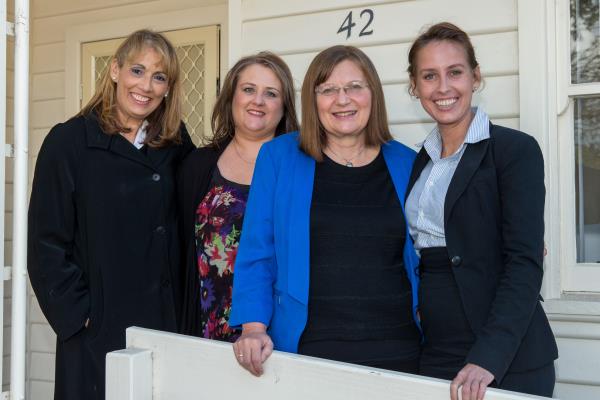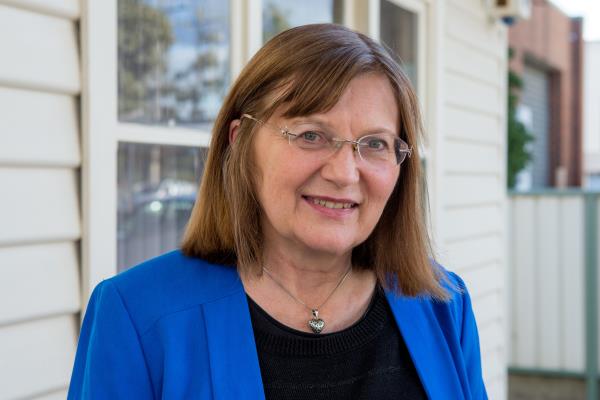
By CAM LUCADOU-WELLS
QUOTE
“A lot of guys may be proud that they don’t hit their wives but they can make their wives’ lives hell by being emotionally and verbally abusive.”
INTRO
Casey-Cardinia Community Legal Service co-ordinator Vera Hardiman, as well as community legal centres around the country, recently scored a ’win’ when the Federal Government scrapped plans to massively cut their funding. But standing up for her clients’ legal rights remains an uphill but noble battle as CAMERON LUCADOU-WELLS reports.
STORY
THE final course of appeal isn’t necessarily in the High Court.
Sometimes for Vera Hardiman, co-ordinator of five lawyers at Casey-Cardinia Community Legal Service, the last hope lies in prayer.
When every other legal avenue is exhausted, several lawyers pray together at the Dandenong and Narre Warren-based service for their battling clients.
Ms Hardiman – who attests to her strong faith – said the outcomes can be “miraculous”.
“I put them in God’s hands and we pray for our clients.”
For the past 30 years Ms Hardiman has taken up the legal fight for the powerless.
Clients with little income and no representation can easily get lost in the legal labyrinth.
Ms Hardiman and her free legal service do their best to provide some equality before the law.
They stand up for the car-accident victim who has to fight a recalcitrant insurer for their pay-out or for the driver whose unpaid $5 tolls escalate to $148 infraction notices and a total bill of hundreds of thousands of dollars.
“The fines should be downgraded to something like $40 each,” Ms Hardiman said.
“We’ve seen people whose children are suffering from leukaemia and they’ve been driving to the hospital.
“They’re not opening their mail because they’re so stressed.
“Then they get tens of thousands of dollars worth of fines. The system is very punitive.
“They can lose their licence, have their car clamped and sold.”
The legal service has come to the aid of pregnant clients whose cars were clamped on a hot day by the Sheriff’s office due to unpaid fines.
“We’ve had some awful stories like a sheriff walking people to the ATM and looking over their shoulder. They’ve been quite intimidating.
“Lately sheriffs are refusing to arrest and bail our clients in our office for a court hearing.
“They’re instead going to their homes and eyeing off their property to work out what they’ve got.”
Ms Hardiman arrived at the service in 2001 after long representing community legal centre clients as a barrister.
The role suits her. She said she prefers helping people than standing in court.
The CCCLS is a free legal oasis that is unsurprisingly growing in demand.
Need is fuelled by Victoria Legal Aid’s strict guidelines to only help accused clients facing jail.
Those falling through the cracks include people with mental illness, those who can’t afford $1500 for a barrister to speak for them in court or uninsured drivers chased for the expenses of an accident.
Many of Greater Dandenong’s clients are new arrivals facing criminal matters, family violence, car accident settlements and fines.
There are many family breakdowns in Casey and Cardinia with ice use and mortgage stress emerging as large underlying problems.
“The phones here are going all day long,” Ms Hardiman said.
Recently, community legal centres won a reprieve from the Federal Government, which was determined to tear away funding.
Ms Hardiman was one of several community legal centre leaders to speak out against the proposed cuts.
The funding reversal came just in time to save the CCCLS’s Narre Warren office from closure, but too late for its financial counselling service which was axed in February.
It had helped 271 clients with hardship issues such as bankruptcy, debt and motor vehicle accidents – up 32 per cent in the past five years.
Three financial counsellors at the service were made redundant.
Though the funding status quo was restored last month, the reality is more than that is required.
A recent Productivity Commission report recommended a $200 million funding boost to help an extra 400,000 eligible clients.
Ms Hardiman said more resources were needed for unemployment law matters, property settlements for people suffering family violence and for people going to court.
The family violence caseload is soaring.
“We usually ask a client if there is family violence in the marriage. At least 75 per cent say yes,” Ms Hardiman said.
She qualifies this by saying domestic violence has broadened to include verbal abuse, financial abuse and social isolation.
“Some men don’t know what abuse is.
“A lot of guys may be proud that they don’t hit their wives but they can make their wives’ lives hell by being emotionally and verbally abusive.”
The service provides training on the law at men’s behaviour change programs, which are group-therapy sessions challenging men to “raise the standard of how they treat women”.
The program’s effectiveness is nobbled by a lack of funding.
“The course runs for a couple of months,” Ms Hardiman said.
“But you often need two years to change their behaviour.”
She said there was still an issue of under-reported family violence.
In some cases, the victim may be disabled and be reluctant to report on the abuser, who they depend on as a carer.
Women of migrant backgrounds can be reluctant to report an abusive husband to police because of the acrimony they would face in their communities.
In other cases, they may regret making a report that is so serious that their husband could be charged and forced to leave the home.
There’s sometimes a family-violence element for a client who is saddled with unpaid traffic fines racked up by an abusive partner.
She is left with the fines because she is too frightened to nominate the partner as the driver.
Ms Hardiman said that often women are disadvantaged in property settlements.
The client’s ex-partner offers to split the property 50-50 but if she’s looking after the kids, she’s entitled to more.
“Women are often worse off in the long run because they can work no more than part-time,” Ms Hardiman said.
“The guys tend to bounce back better financially. They’re usually earning more anyway.”
She said men often don’t see the separation coming. Sometimes the legal service sees women for year after year, wanting to know their options before they break it off.
“Women being the least financially secure are primarily concerned about the welfare of their children.
“Often the women have planned it over several years and the husbands are terribly shocked.”
There’s a lot of talk about being tough on crime.
Ms Hardiman wishes there was more emphasis on rehabilitation.
“They say people should be locked away for good for being a paedophile.
“There’s not the same mentality that there should be more rehabilitation or more mental health programs.
“A lot don’t understand how much of the accused’s personal life is revealed to the judge.
“There’s a lot of thought that goes into sentencing a person.”







